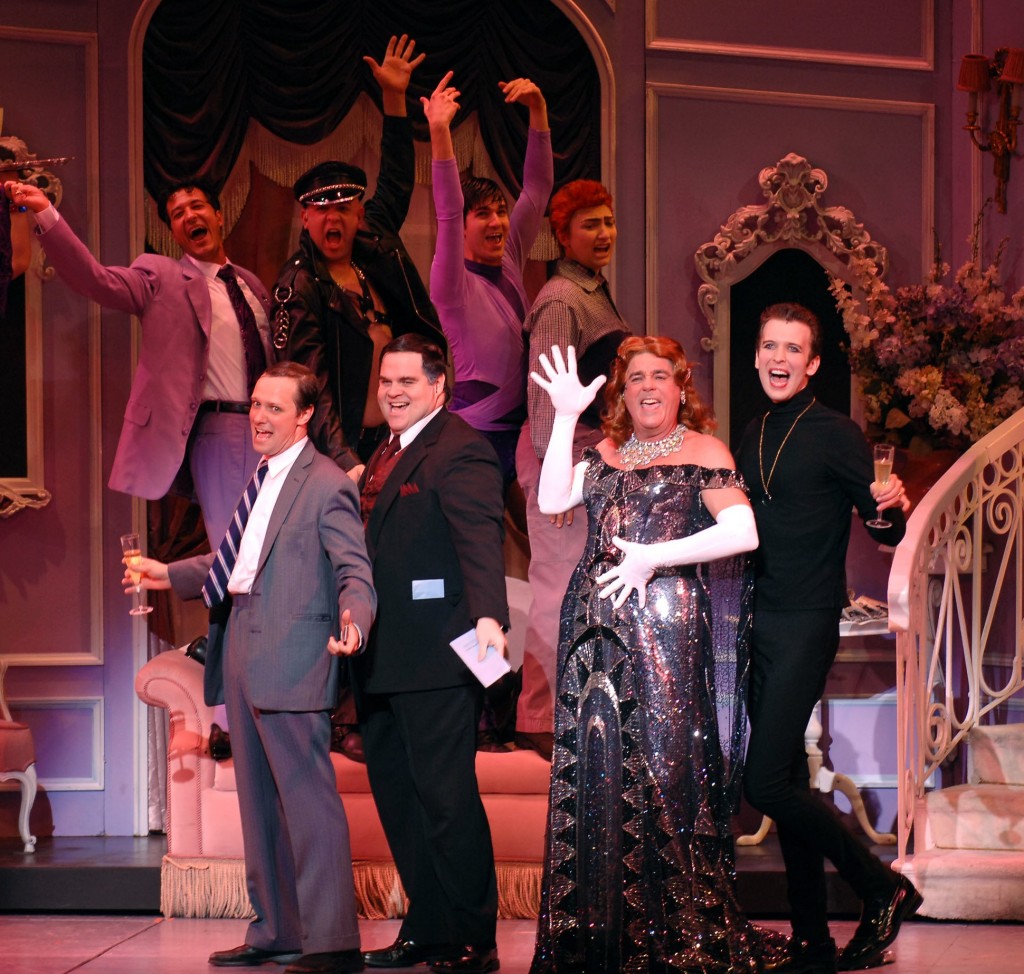“The Producers” runs Jan. 25-31 at the Fox Theatre. Tickets HERE.
“Where Did We Go Right?” producer Max Bialystock laments in The Producers when he achieves unwelcome Broadway success after betting on failure.
Mel Brooks may have asked himself “Where didn’t we go right?” when contemplating the emphatic popularity of The Producers, which ran for 2,502 Broadway performances and won 12 Tony awards.

In the wake of The Producers‘ acclaim, Brooks liked to say that the show put the “comedy” back in “musical comedy.” The show found the widespread appeal that eluded his original film version, a commercial disappointment despite winning the Academy Award for best original screenplay.
It’s possible that The Producers wanted to be a musical all along.
After serving as an Army combat engineer in World War II, Brooks became a pianist and drummer in the famed Borscht Belt of Catskill Mountains resorts. He went on to do stand-up comedy, then became a staff writer for Sid Caesar’s “Your Show of Shows” and eventually a filmmaker, but he always retained the instincts of an old-school song-and-dance lover.
He made his big-screen writing and directing debut with The Producers in 1968, based on one of the best premises in comic history: Two producers attempt to defraud their investors by deliberately making Broadway’s biggest flop, only to have their show become a surprise smash and blow up in their faces. Brooks wanted to call the film Springtime for Hitler after the pro-Nazi comedy within the show, but his producers balked.
Brooks’ filmmaking career petered out In the 1990s with Dracula: Dead and Loving It, his final film to date, but DreamWorks co-founder David Geffen convinced a skeptical Brooks to turn The Producers into a stage musical. Brooks hired the husband-and-wife team of Michael Ockrent and Susan Stroman to direct and choreograph, respectively, but when Ockrent died of leukemia in 1999, Stroman took on both jobs. Brooks, who’d written the amusing lyrics and catchy melodies in the film, wrote the songs.

The movie was billed has having “something to offend everyone,” but despite being an equal opportunity insulter, it provokes more nostalgia than outrage with its tame, old-fashioned schtick about theater queens, Nazi sympathizers and vulgar show-biz moguls. Scandinavian bombshell Ulla may be a vapid bimbo in both versions, but at least in the musical she’s a forceful, confident woman with her own number.
For the filmmaker’s fans, The Producers serves as both a master class in vaudeville-style jokes of the “walk this way” variety and a compendium of Brooks lore. Several tunes take their titles from the movie’s dialogue, including “King of Broadway,” “If You’ve Got It, Flaunt It” and “Where Did We Go Right?” In the movie, Teutonic playwright Franz Liebkind’s innocent wish of “good luck” perhaps inspired the number about show-biz superstitions, “You Never Say Good Luck on Opening Night.”
Brooks even included a few inside jokes from his movies. During “The King of Broadway,” a chorus member makes the aside, “It’s good to be the king,” winking to a running joke from History of the World Part I. “Springtime for Hitler” builds a centerpiece around “Heil, Myself,” a catchphrase from Brooks’ World War II-era To Be or Not to Be. “Springtime for Hitler” also reprises Brooks’ off-screen cameo from the movie. On both stage and screen, a performer lip-syncs to Brooks’ pre-recorded line,“Don’t be stupid, be a smarty / Come and join the Nazi party.”
Brooks relished The Producers’ success and, in 2004, turned the scenario of an unwelcome hit back on himself with the help of “Curb Your Enthusiasm.” The HBO show’s fourth season hinged on Brooks inexplicable casting of Larry David as Max Bialystock, despite David’s conspicuous lack of singing, dancing and acting talent.
During David’s (fictional) Broadway debut, Brooks revealed to his real-life wife, Ann Bancroft, that he was sick of The Producers and wanted David to bomb so he could finally put the show behind him.
Audiences unexpectedly loved David’s awkward ad libs and made The Producers a hit all over again, leaving Brooks and Bancroft to lament, a la Bialystock and Bloom, “No way out.”
We should all have such failures.
::
Curt Holman writes about arts and entertainment for Creative Loafing, Atlanta Magazine, ArtsATL.com, Paste and Encore Atlanta. He has won awards for critical writing from the Association of Alternative Newsmedia and the Society of Professional Journalists and, in 2005, was a National Endowment for the Arts fellow in theater and musical theater.



